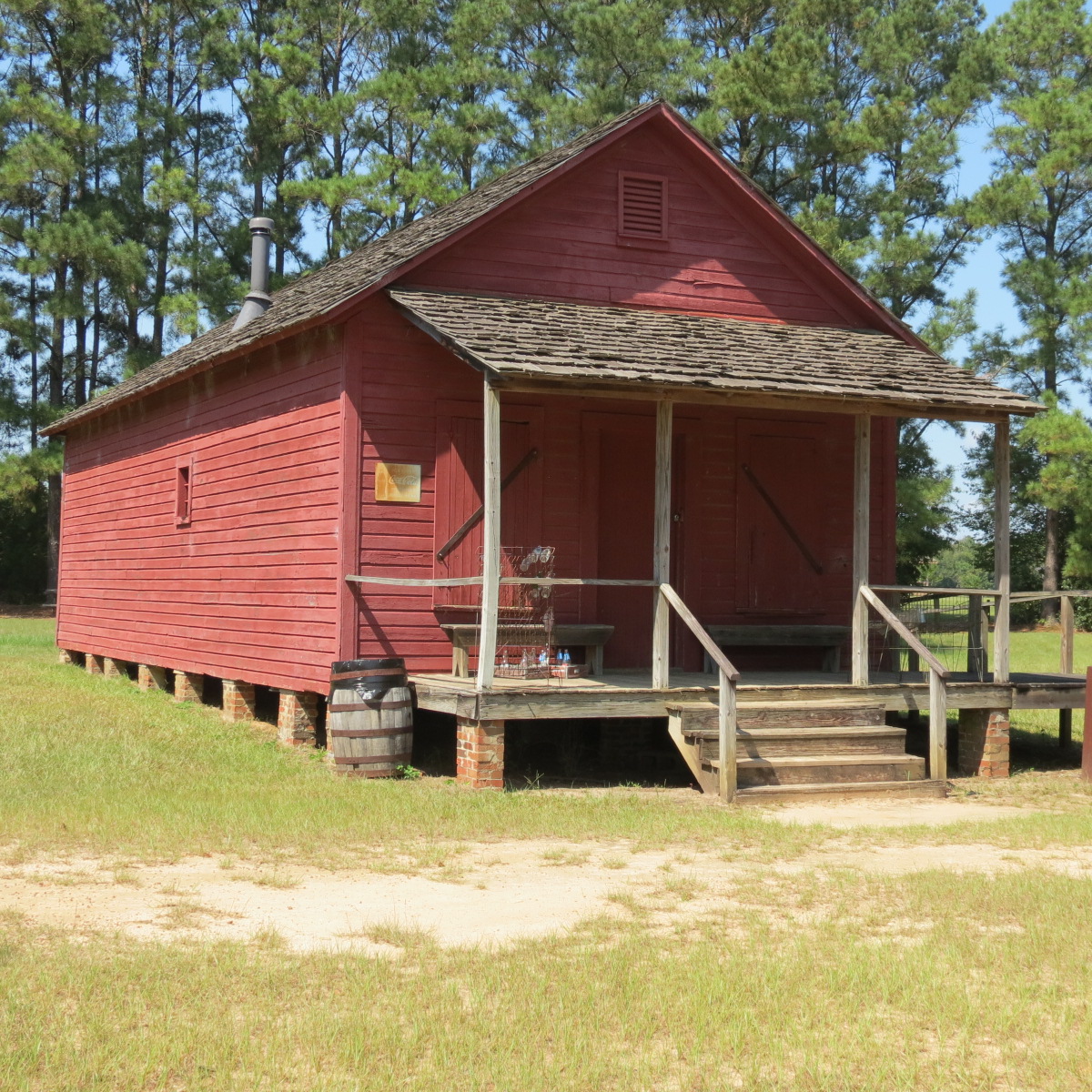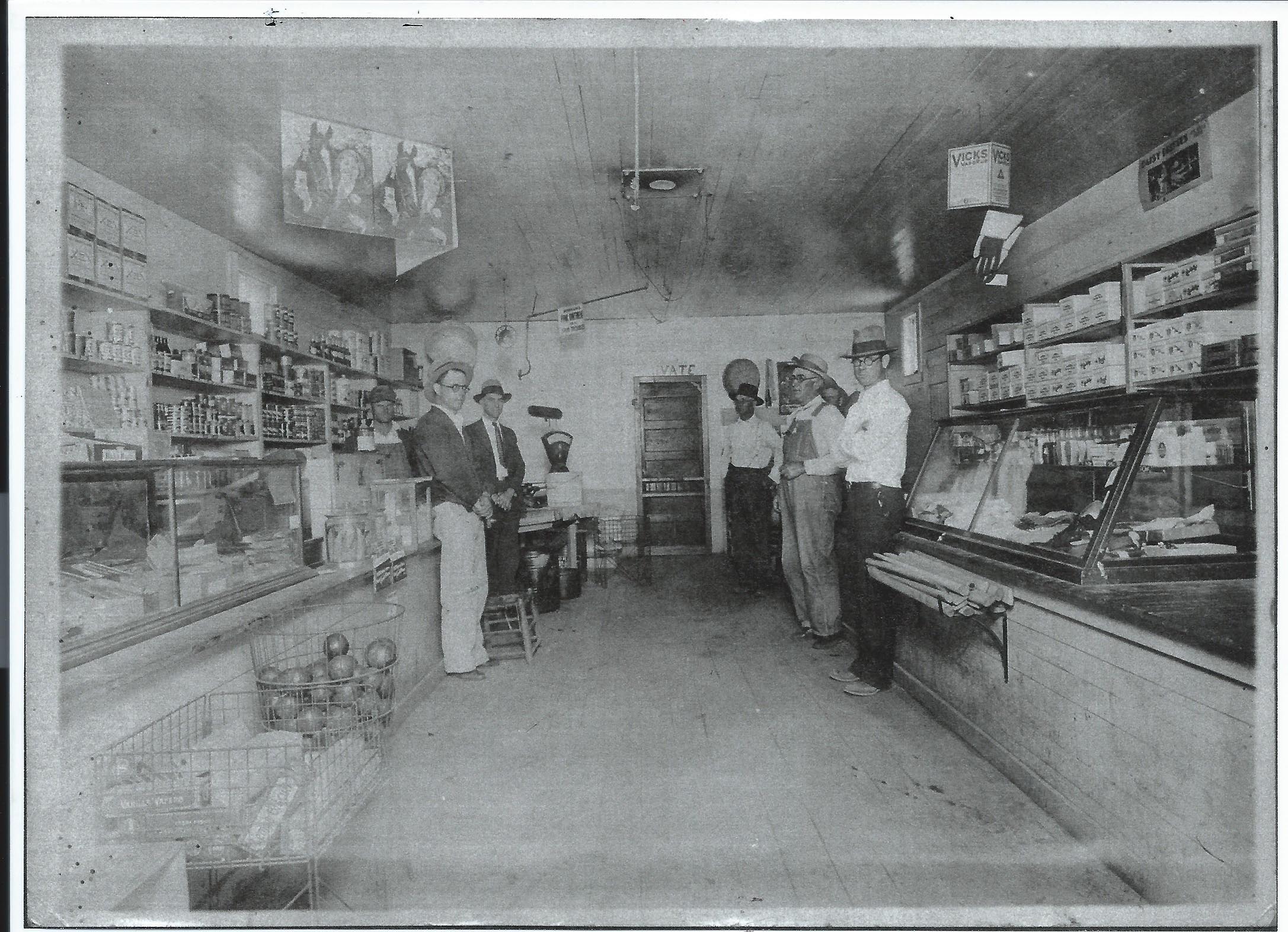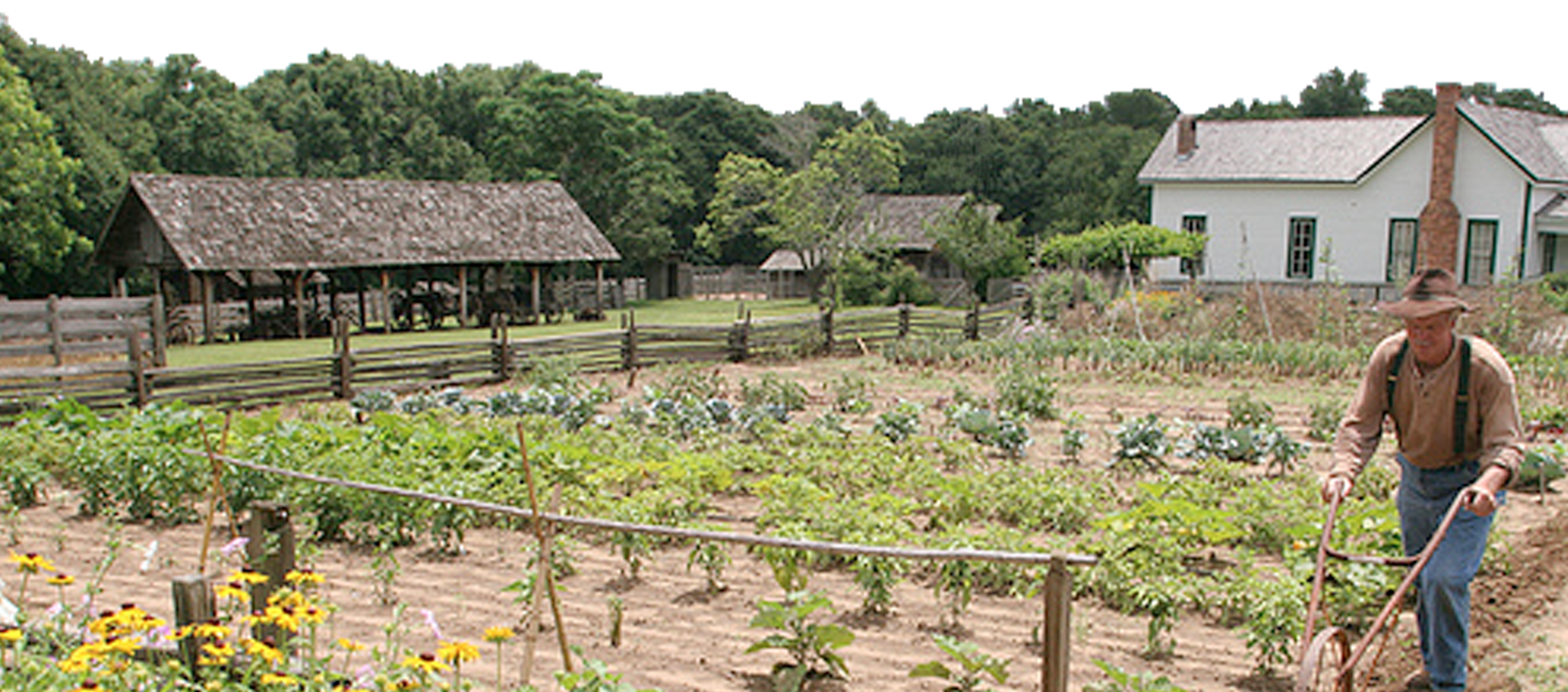Shelley Store from Landmark Park on Vimeo.

The Shelley Store
The “country” or “general” store was one of the most important and popular establishments of a crossroads community, especially before the 1940s. It typically carried products of all kinds but often served as the post office, polling place, and gathering spot for local men.
The Shelley Store is one example of a Wiregrass country store. Built narrow and deep, measuring 18′ x 40′, the structure does not have the false square front that signified its purpose just like the spiral-striped pole signified the barber shop. Instead it has a gable front — possibly because it began life as a canning factory.
William L. “Papa Billy” Shelley was a prominent member of one of the three Shelley families in Tumbleton and owner of local farms totaling 2000 acres. In 1911 he constructed the cannery building next to his residence at the intersection of modern County Roads 70 and 99 north of Tumbleton in Henry County, Alabama. Papa Billy canned local vegetables and Georgia peaches using a Shelley label, and also canned produce for neighboring farmers, charging them either cash or shares of the finished product. After a few years, however, he converted the canning operation into a store for his tenants and neighbors.
Dewey Shelley, young son of Papa Billy and wife Nannie, managed the store. He certainly stocked most of the goods common to that time – canned goods, dry goods, and farm implements. They were all stashed on shelves against the wall or in cabinets and sold to local residents and tenant farmers. In the back of the store was an oyster bar, another common feature, where local men shucked oysters and tossed the shells out the window toward the nearby blacksmith shop. In summer, men and boys loafed on the large porch. In winter they argued politics and told tall tales by the pot-bellied stove. Community members could quickly communicate with the outside world, too, after the store installed a wall-mounted oak box telephone.
In the early 1920s, Henry County cut a new dirt road from Headland to Abbeville through Tumbleton using federal aid. This road was an original stretch of US Highway 431 that, after the 1960s, became County Road 99. Papa Billy decided to move the store into a new building that faced this newly-cut road and was closer into town. Dewey managed the new store until the Great Depression and farm mechanization reduced Tumbleton’s population from a high of 1000 residents during the 1920s farming boom to just a few hundred people by the late 1930s. Without enough people living in the area, Dewey was forced to close the store.
The original country store building was used by the family as a storage shed until Papa Billy’s granddaughter Jolaine Masters opened “Jo’s Antiques” in 1978. Business was poor, though, and she closed in 1983.
In 1994 the family of Mary Eunice Shelley, Papa Billy and Ms. Nannie’s last surviving daughter, donated the original store building to Landmark Park. It was still painted with the “Jo’s Antiques” name when Ducky Johnson House Movers brought it to the park. Generous donations of lumber, electrical supplies, and labor helped significantly with restoring the building after its relocation.
On December 10, 2006, Landmark Park unveiled the Historic Chattahoochee Commission marker that stands before the Shelley Store today.
Marty Olliff
Sources:
Davis, Mac. “William Lafayette (Billy) Shelley Store.” The Patrick Henry Orator, March 2007.
Lewis, Danny. “Country Store Moved to Landmark Park.” Dothan Eagle, October 7, 1994.










